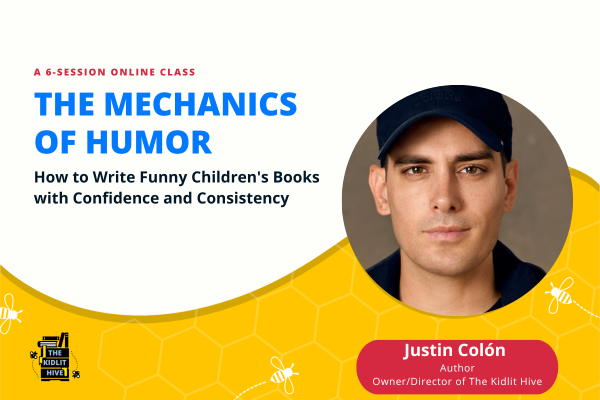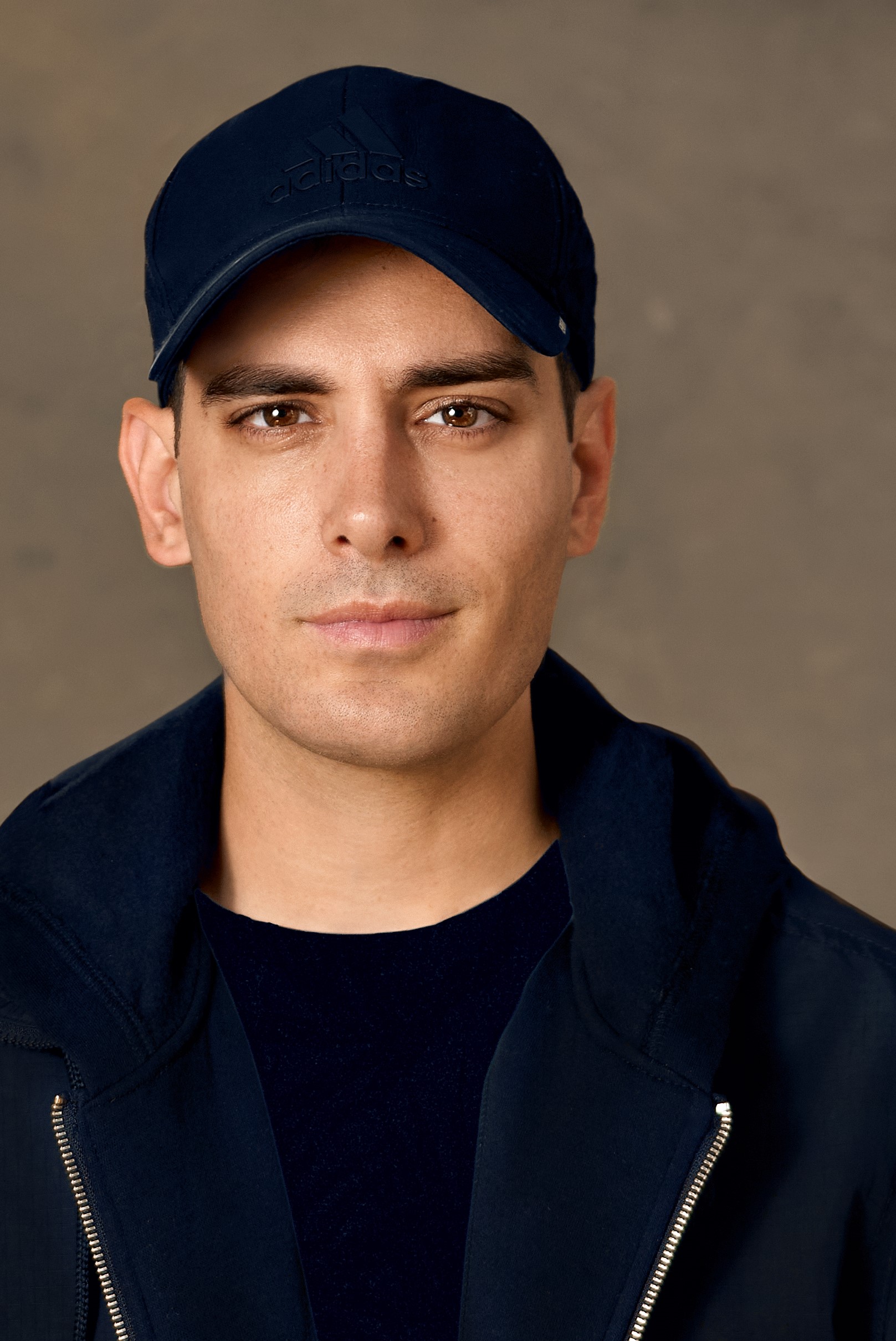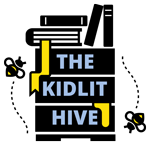- Event Type: Multi-Week Class
-
21 students
(with one spot reserved for a BIPOC scholarship recipient) -
Dates:
MAY 7, 2024
MAY 14, 2024
MAY 21, 2024
MAY 28, 2024
JUNE 4, 2024
JUNE 11, 2024 - Time: 5:00 p.m. ET
- Price: $275.00 USD

Class Overview
Humor is hard. It can feel elusive. Some people are just naturally funny. But did you know that humor is a skill that can be honed? This course will deconstruct humor and how it works and equip you with the knowledge and know how to effectively incorporate humor into your children’s book stories with specific tips, tricks and techniques you can rely on everytime, giving you a foundation to work from so that you can enjoy writing funny stories with confidence and consistency.
Course Structure
- Visual and verbal presentation of week’s topic
- Mentor texts
- Relevant classroom exercises
- Optional homework
- In-class discussion of session’s topic and previous week’s homework
Weekly Agenda
- The difference between humor and comedy
- The theories of humor
- The secret sauce of humor
- The various types of humor within children’s books
- Setup & punch
In-class exercise: In-class exercise: We will analyze several picture books, focusing on their setup and punch. We will also play a simile/mad libs-style game in which we exercise our newfound knowledge of incongruities, benign-violation, and setup and punch.
Homework: Students will be asked to produce and bring to the following session a list of 10 words that aren’t that funny but could be used in a picture book.
- Word form & meaning
- Word frequency & funny letters
- Onomatopeia
- Alliteration & assonance
- Rich vocabulary
- Hyperbole
- Puns
- Idioms
- Specificity
In-class exercise: Using the list students bring in as their homework, they will then find alternative, funnier forms of their chosen words using what we’ve learned about language in relation to comedy.
Homework exercise: Students will be given a writing prompt and asked to produce a short picture book scene in which they incorporate what they’ve learned in this week’s session about language, capitalizing on the comedic potential of the scene through the use elements and devices such as word form, alliteration and assonance, rich vocabulary, and specificity.
- Character flaws
- Character motivation and objective
- Internal and external character arcs
- POV & comedic lens
- Comedic conflict & tension
- Stakes
- Heart
In-class exercise: TBD
Homework: Write a journal entry from your character’s perspective applying what we’ve learned in this session.
- Exaggeration
- Escalation
- Callbacks
- The “Rule” of Three
In-class exercise: Using the previous week’s homework, we will apply exaggeration and escalation to that character’s journal entry or a scene involving them.
Homework: Students will be given a writing prompt for exaggeration and escalation and given the option of having it reviewed during the following class.
- Pacing for effective comedic timing
- Pagination
- Page turns for maximum comedy
- Thinking visually and utilizing art notes effectively
- Ending your story with a bang (and possibly a good twist)
In-class exercise(s): A manuscript will be shared with the class on-screen and students will work together to paginate it, keeping in mind pacing and page turns.
Homework: Students will also be pitched jokes and scenes and asked to write effective art notes for them to be reviewed the following class.
- Breakdown of concept
- High concept versus low concept
- Breakdown of premise
- Where to source inspiration & mine for comedy
- The elements of compelling titles
- Revision tips
In-class exercise: We will use the “what if?” exercise to demonstrate a potential idea-generating hack students can add to their comedy writing toolbox.
Feedback You'll Receive
- Discussion about humor and funny picture books
- Opportunity for Q&A during live class sessions.
- Feedback on in-class exercises and homework

Justin Colón
Justin Colón is the owner/director of The Kidlit Hive and the author of the forthcoming picture books, IMPOSSIBLE POSSUMS (Disney-Hyperion, 2024), IMPOSSIBLE POSSUM FOR MAYOR (Disney-Hyperion, 2025), THE QUACKEN (Simon & Schuster, 2024), and a few books yet to be announced. In his other life, he's a professional, formally trained voice and on-camera actor and proud SAG-AFTRA member who has co-starred on hit shows such as Unbreakable Kimmy Schmidt, Gotham, and Sneaky Pete. Justin lives in New York.
